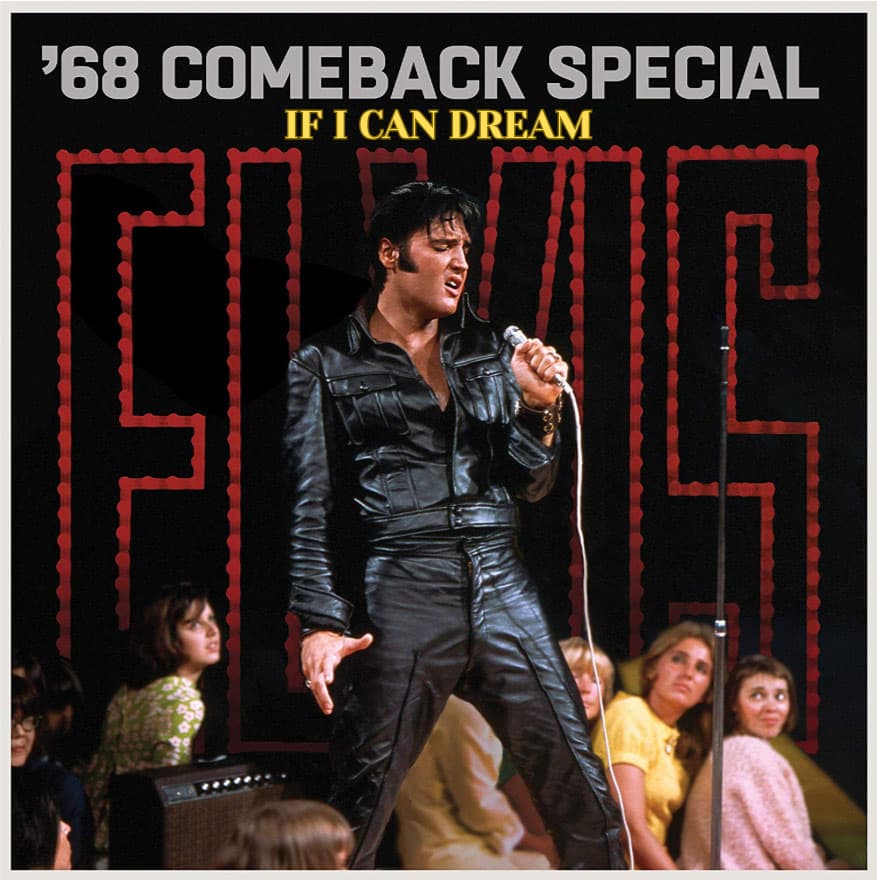
An Urgent Plea for a World of Peace and Understanding
In the late 1960s, a palpable tension hung in the air. The Vietnam War raged, civil rights protests escalated, and the assassinations of Martin Luther King Jr. and Robert F. Kennedy left a nation in mourning. Amidst this turmoil, the King of Rock and Roll, Elvis Presley, was on the cusp of a career-defining moment. After years spent churning out forgettable movie soundtracks, Elvis was ready to reclaim his throne. The vehicle for his return was a television special, an intimate, raw performance that would remind the world of his electrifying talent. The show’s producer, Steve Binder, wanted to end the special with a message of hope, a poignant response to the tragedies of the year. He found his answer in a powerful, gospel-inflected ballad written by Walter Earl Brown: “If I Can Dream.”
Released as a single in November 1968, “If I Can Dream” didn’t just chart—it soared. It peaked at #12 on the Billboard Hot 100, becoming a powerful symbol of Elvis‘s resurgent career. But its true impact lay not in its numbers, but in its message. The song’s genesis is a story of creative conviction and a deep-seated desire to speak to the times. Originally, Colonel Tom Parker, Elvis’s manager, wanted to end the show with a festive Christmas carol. However, Steve Binder and musical director Bones Howe were steadfast in their belief that the special needed a more meaningful, contemporary conclusion. Walter Earl Brown’s newly written song, with its impassioned lyrics about a world free of hatred and filled with love, was the perfect fit.
The lyrics of “If I Can Dream” are a direct reflection of the turbulent era. It’s a song of profound hope, a heartfelt prayer for a better tomorrow. The opening lines, “There must be lights burning brighter somewhere / Got to be a reason why the stars glow above,” set a tone of longing and a search for meaning amidst the chaos. As the song builds, Elvis’s voice becomes a vessel for a collective yearning: “If I can dream of a better land / Where all my brothers walk hand in hand / Tell me why, oh why, can’t my dream come true?” These lines, delivered with an almost desperate urgency, were a direct and powerful echo of Martin Luther King Jr.’s own “I Have a Dream” speech, and they resonated deeply with a generation grappling with the realities of division and violence.
Elvis himself was deeply moved by the song’s message. He saw it not just as a performance, but as an opportunity to use his platform for good. The song was a far cry from the lighthearted pop tunes he had been singing for years. It was a serious, gospel-tinged plea for unity, and his performance of it on the ’68 Comeback Special was nothing short of breathtaking. Dressed in a striking white suit, he delivered the song with an intensity and sincerity that reminded the world of the raw, emotional power he possessed. The performance was a revelation, a moment where the King of Rock and Roll became a prophet of peace, channeling the pain and hope of a nation through his magnificent voice.
The impact of “If I Can Dream” extended far beyond its chart position. It was a statement, a return to form for an artist who had been sidelined by Hollywood, and a powerful message of hope in a time of despair. It remains one of Elvis Presley‘s most enduring and significant recordings, a timeless anthem that proves the power of music to heal, to inspire, and to dream of a better world, even in the darkest of times. It’s a song that speaks to the very heart of the human condition, a reminder that even when the world seems to be falling apart, the dream of peace and understanding is a flame that can never be extinguished. For those who lived through that tumultuous time, hearing “If I Can Dream” today is not just listening to a song; it’s reliving a moment of collective hope, a beautiful and poignant memory of when the King used his voice not just to entertain, but to heal.